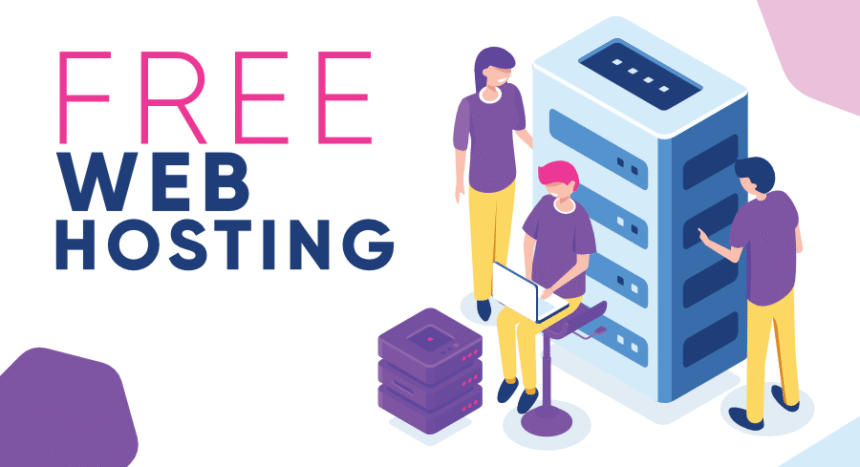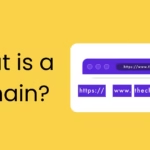When you’re starting a website, one of the first decisions you face is choosing the right hosting solution. Free hosting often seems like the obvious choice—especially when you’re on a tight budget. It sounds like a no-brainer: get your site online without spending a dime. But is free hosting really as great as it seems, or does it come with hidden costs that could affect your website’s success?
In this article, we’ll take a deep dive into the world of free web hosting. We’ll explore the hidden costs and benefits, helping you make an informed decision about whether free hosting is the right choice for your site. We’ll also compare it to paid hosting options to see if the lack of a price tag is worth the trade-offs.
What is Free Hosting?
At its core, free hosting refers to a web hosting service that offers free space on a server to store and serve your website’s content. Unlike paid hosting, which comes with various plans offering different levels of service, free hosting often provides minimal features with the option to upgrade for more advanced functionalities.
Free hosting typically works by providing users with limited resources (storage, bandwidth, etc.), but there are trade-offs. To make money, most free hosting providers place ads on your site, and they may limit your control over the design and functionality of your website. These providers often rely on displaying ads to generate revenue, so you don’t have to pay upfront for hosting services.
The Benefits of Free Hosting
While free hosting has its drawbacks, it’s not all bad. There are some notable benefits that make it a good choice for certain types of users. Let’s explore these advantages in detail.
1. Zero Cost
The most obvious benefit of free hosting is that it costs absolutely nothing. This is ideal for users who want to create a website but don’t have the budget to spend on a paid hosting service. It’s particularly attractive for beginners, hobbyists, and small-scale personal projects where there’s no immediate need for premium features.
Free hosting allows you to dip your toes into the world of website creation without committing any money upfront. Whether you’re setting up a blog, a portfolio, or a simple informational website, free hosting provides an easy way to get started without worrying about hosting fees.
2. Easy Setup Process
Many free hosting platforms offer user-friendly setup processes. Most providers have intuitive website builders with drag-and-drop functionality, which makes it easy to design and launch your site without any coding knowledge. You can pick a pre-designed template, customize it to suit your needs, and get your website up and running in no time.
For beginners who aren’t familiar with the technicalities of web development, free hosting provides an entry point to learn how to manage a website. This ease of use is one of the key reasons many people start with free hosting before considering a more professional, paid hosting option.
3. Ideal for Testing and Experimentation
Free hosting is an excellent choice if you’re experimenting with different web design concepts, testing new features, or learning how to build a website. It’s a risk-free environment for anyone who’s not sure about their website’s future direction or potential. You can test your ideas, adjust layouts, and tweak content without worrying about investing money.
For entrepreneurs who want to test market demand before fully committing to a product or service, free hosting offers a low-risk way to test the waters. Similarly, if you’re building a site for a temporary project or event, free hosting can be a hassle-free option.
4. No Long-Term Commitment
One of the best things about free hosting is the lack of long-term commitment. With most paid hosting services, you have to sign a contract or commit to a certain plan for a specified period, often a year or more. In contrast, free hosting lets you start your website with no strings attached.
If you decide to switch platforms or upgrade to a paid hosting plan in the future, you can do so without any contractual obligations. This flexibility makes free hosting a good option for people who are just starting out or aren’t sure if they’ll stick with their website in the long run.
5. Great for Personal Websites
For individuals who just want to create a personal website, blog, or portfolio, free hosting can be more than enough. If your website is not intended to generate revenue or support a large audience, free hosting can provide all the resources you need to showcase your content.
A personal blog, photo gallery, or simple portfolio doesn’t need advanced features like high performance, custom email addresses, or premium customer support. For these types of websites, free hosting is often sufficient to get the job done.
The Hidden Costs of Free Hosting
While free hosting may seem like an ideal solution for many, it’s important to understand that there are some significant drawbacks that can affect the performance and long-term success of your website. Let’s explore some of the hidden costs associated with free hosting.
1. Limited Resources and Poor Performance
Free hosting plans come with significant limitations, particularly when it comes to resources like storage space and bandwidth. Free hosting providers often allocate very limited resources, which can lead to slow website loading times and performance issues as your site grows.
Since free hosting services are often shared between multiple users, your website may be affected by the traffic or performance issues of other sites on the same server. As your website gains traffic, you may find that free hosting no longer meets your needs, resulting in poor user experience, long loading times, and even downtime.
For any website that expects to grow or handle large amounts of traffic, free hosting can be an inadequate solution. At some point, you will likely need to upgrade to a paid hosting plan to access the resources necessary for optimal performance.
2. Forced Advertisements
One of the most frustrating aspects of free hosting is the advertisements that are displayed on your website. To offset the cost of providing free hosting, most providers insert ads into your site. These ads are often placed in prominent locations, such as headers, footers, or sidebars, and can detract from your site’s professional appearance.
These ads can be particularly annoying for visitors, who may find the constant pop-ups, banners, and auto-play videos disruptive. The worst part? You have no control over the types of ads that are displayed, and some of them may be completely unrelated to your content or audience. This can affect your brand’s reputation and reduce the credibility of your site.
3. Lack of Customization and Control
With free hosting, you often have limited control over the design, features, and functionality of your website. Many free hosting providers offer basic templates with minimal customization options. If you’re looking for a unique, customized website that stands out, you’ll be limited by what the platform offers.
Additionally, free hosting plans usually come with restrictions on features like custom domains, SSL certificates, and email addresses. These limitations can prevent you from fully branding your site and securing your visitors’ data, which is particularly important if you’re running a business.
4. Poor Security Features
When you’re using a free hosting service, security may not be a top priority. Free hosting providers often don’t offer the same level of security as paid services. For instance, many free hosts don’t provide SSL certificates, which are crucial for encrypting data and ensuring a secure connection between your site and your visitors.
Lack of security features leaves your website vulnerable to hacking attempts, malware, and data breaches. Since many free hosting services don’t offer regular backups, your data could be lost if something goes wrong. If security is important to you—especially if you’re handling sensitive customer data—free hosting may not be the right choice.
5. No Customer Support
Another hidden cost of free hosting is the lack of customer support. When problems arise, you may be left to troubleshoot on your own. Free hosting providers generally do not offer 24/7 customer support, which can be a major drawback if your website encounters issues during peak traffic times.
Paid hosting services often provide comprehensive support through live chat, phone support, or email. If you’re serious about running a business or relying on your website for income, having reliable customer service is essential to ensure that problems are fixed quickly and your site remains operational.
6. Unreliable Uptime
Many free hosting platforms do not guarantee a high level of uptime, meaning your site could experience frequent downtimes. Free hosting providers may prioritize paid customers and allocate fewer resources to free accounts, resulting in slower speeds and more frequent outages.
For businesses or professional websites that rely on uptime and performance, free hosting can be a gamble. Extended downtime can hurt your reputation and result in lost traffic, sales, and revenue.
7. Limited Scalability
As your website grows, you may find that free hosting no longer meets your needs. Free hosts typically provide only a basic set of resources, which means you’ll quickly hit a wall when it comes to scaling your website.
Whether you want to add more features, handle more traffic, or incorporate additional services, free hosting often limits your options. Upgrading to paid hosting can be a complex and time-consuming process, and you might face compatibility issues when migrating your website.
How Free Hosting Compares to Paid Hosting
So, how does free hosting stack up against paid hosting? Let’s compare the two options across various factors.
1. Performance and Resources
Paid hosting services offer far more resources and better performance than free hosting. With paid hosting, you get access to dedicated resources, faster servers, and optimized performance, ensuring that your website can handle high traffic and run smoothly.
Free hosting, on the other hand, often offers limited bandwidth, storage, and resources, which can result in slow loading times, poor user experience, and frequent downtime. For businesses or websites expecting to grow, paid hosting is the better choice.
2. Customization and Control
Paid hosting gives you full control over your website’s design and functionality. You can install custom themes, plugins, and scripts, as well as use your own domain name, create custom email addresses, and more.
Free hosting typically limits your control, forcing you to use basic templates and restricting features like custom domains or advanced tools. If you need full flexibility, paid hosting is the better option.








